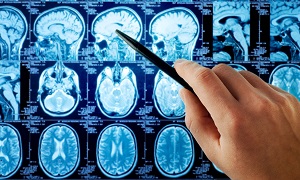Best Doctors in India for Brain Hemorrhage Treatment
Best Hospitals in India for Brain Hemorrhage Treatment
- City: Bengaluru, India
Hospital Highlights:
- Fortis Hospital Bannerghatta, Bengaluru was established in 2006.
- The hospital is a 276 bedded multi-specialty tertiary care facility.
- The hospital specializes in cutting-edge medical technology and dedicated patient care services.
- The hospital is equipped with state-of-the-art technologies like trans-radial angioplasty, trans-abdominal cardiac surgery, and computerized TKR navigation surgery.
- The hospital provides specialty medical services in cardiology, cardiac surgery, orthopedics, neurology, neuro-surgery, GI, and Minimal Access Surgery (MAS).
- City: Chennai, India
Hospital Highlights:
- Fortis Malar was established in 1992 and was formerly known as Malar Hospital.
- The hospital specializes in cutting-edge medical technology and dedicated patient care services.
- The hospital is multi-specialty, tertiary care facility with 180 beds.
- The hospital offers comprehensive medical care in specialties such as cardiology, cardio-thoracic surgery, neurology, neurosurgery, orthopedics, nephrology, gynecology, gastroenterology, urology, pediatrics, and diabetes.
- City: New Delhi, India
Hospital Highlights:
- Established in 1996, Pushpawati Singhania Research Institute is one of the top hospitals in the NCR region, as well as one of the top facilities in India for gastroenterology. The hospital is one of South Asia’s first institutes in medical and surgical treatment for diseases related to digestion.
- The hospital is equipped with state-of-the art facilities coupled with the latest equipment as well as renowned consultants from various parts of India as well as other parts of the world.
- City: New Delhi, India
Hospital Highlights:
- State-of-the-art technology and devoted healthcare professionals have been brought together under one roof at Venkateshwar Hospital to provide genuine medical care. The hospital’s professionals work together as a team to deliver the best possible treatment to their patients, using the most sophisticated equipment and information technology.
- Venkateshwar Hospital’s mission is to attain global excellence in healthcare by employing evidence-based, ethical clinical practices and cutting-edge technology by a team of highly skilled experts.
- City: New Delhi, India
Hospital Highlights:
- Sir Ganga Ram Hospital, New Delhi is known to provide the latest medical procedures with the latest technology in all of its units.
- The hospital has a team of reputed doctors, nurses, and healthcare professionals that ensure that patients receive quality care at affordable costs.
- Staffed with a team of highly qualified doctors, dedicated nurses, and paramedical and non-medical staff, the hospital aims to lead in healthcare delivery, medical education, training, and research.
- As per the vision of the founder, the hospital also provides free treatment to the economically weaker sections of society.
- Sir Ganga Ram Hospital also provides training to young doctors under the Diplomate in National Board(DNB) program. The DNB program at the hospital was started in 1984 and it is known for currently running the maximum number of DNB specialties in the country. It also has the distinction of having the first bone bank in India.
- City: Kerala, India
Hospital Highlights:
- Established in 2019, Apollo Adlux Hospital is the first Apollo Hospital in Kerala and the 73rd hospital owned by Apollo Group in India. With the state’s most advanced, comprehensive healthcare infrastructure and cutting-edge technologies, Apollo Adlux Hospital stands as an example of medical excellence in Kerala.
- With over 34 multi-specialty departments, the hospital believes in providing the best quality treatment to its patients at affordable rates, ensuring comfort at their difficult times.
- The 300-bed hospital is managed by a team of highly qualified and experienced experts who delivers exceptional hospitality to their patients and treats them with great compassion.
- With its affiliation with the Apollo Hospitals Group, the hospital aims in providing patients with top-notch healthcare services while also serving communities in Kerala.
- The hospital has good railway and road connections, and is conveniently close to Cochin International Airport.
- City: Gurugram, India
Hospital Highlights:
- Situated near DLF Cyber City, Gurugram, Narayana Superspecialty Hospital is one of the top medical facilities in the Delhi NCR region, catering to the needs of the people. Known for its commitment to quality medical care and patient service, the hospital is a state-of-the-art facility with planned and well-equipped sections, which includes a spacious OPD area as well as comfortable patient rooms.
- It is the closest super-specialty hospital from Indira Gandhi International Airport towards Gurugram, and also the nearest super specialty hospital from DLF Cyber City. It is also close to major residential areas in Gurugram.
- It is part of the renowned Narayana Health Group. Established in 2000, by Dr. Devi Shetty, a renowned cardiac surgeon, it has grown to be one fo India’s leading healthcare groups.
- City: Noida, India
Hospital Highlights:
- Fortis Hospital, Noida, stands as one of the oldest and most trusted healthcare institutions in the region, setting a benchmark for comprehensive medical care.
- As the second mega hub hospital in the Fortis Healthcare Group, Fortis Hospital, Noida, upholds a legacy of trust among more than 1.2 million patients. By integrating top-tier professionals with cutting-edge technology, the hospital delivers superior treatment across various medical disciplines.
- Specializing in advanced Neurosciences, Orthopedics, Kidney and Liver Transplant Programmes, Fortis Hospital, Noida has successfully performed over 1,500 transplants, solidifying its reputation as a leader in specialized medical interventions.
Brain Hemorrhage
Brain hemorrhage is a type of stroke that is caused when an artery in the brain bursts. This can lead to localized bleeding in the surrounding tissues. This kind of bleeding is known to kill brain cells.
People, who generally experience a brain hemorrhage, have symptoms similar to that of a stroke, and they can also develop weakness on one side of their body, difficulty in speaking or experience a sense of numbness.
Symptoms
If you are exhibiting any of the following symptoms, then you might be having a brain hemorrhage:
- A sudden severe headache
- Seizures with no history of seizures previously
- Changes in vision
- Numbness or tingling
- Weakness in an arm or a leg
- Nausea or vomiting
- Decreased alertness or Lethargy
- Difficulty speaking or understanding speech
- Difficulty in swallowing
- Difficulty reading or writing
- Loss of fine motor skills, such as hand tremors
- Loss of balance
- Loss of coordination
- Abnormal sense of taste
- Loss of consciousness
However, it is notable that many of these symptoms are also often caused by conditions other than brain hemorrhages.
Causes & risk factors
The most common cause of a brain hemorrhage is generally elevated blood pressure. Over time, high blood pressure can lead to the arterial walls getting weakened, which can lead to a rupture. When this occurs, blood collects in the brain, which can cause symptoms of a stroke.
Some of the other causes and risk factors of a brain hemorrhage include:
Head Trauma- For people younger than the age of 50, injury is the most common cause of bleeding in the brain.
Aneurysm- This is a weakening in a blood vessel that swells. It can burst and bleed into the brain, leading to a stroke.
Blood Vessel Abnormalities- Weaknesses in the blood vessels in and around the brain, might be present at birth, and they can only be diagnosed if symptoms develop.
Amyloid angiopathy- This is an abnormality in the walls of the blood vessels that can sometimes occur with high blood pressure or aging. It might lead to several small, unnoticed bleeds before it leads to a large one.
Liver Disease- Generally, this condition is associated with increased bleeding.
Blood or bleeding disorders and brain tumors can also increase the risk of a hemorrhage.
Diagnosis
If any kind of stroke is suspected, it is important to perform an evaluation immediately. The examination might reveal evidence of brain injury with weakness, slurred speech as well as the loss of sensations. A radiology examination such as a CT scan or an MRI is also sometimes necessary. It can help to highlight various features and locations of brain bleeding. If bleeding inside of or around the brain is noted, then your doctor might recommend further testing, to determine the cause of the bleeding.
This additional testing might help in determining if abnormal blood vessels are present as well as the next step in diagnosis or treatment.
Treatment
Close monitoring is very essential for patients with bleeding inside the brain. Early treatment can include stabilizing blood pressure and breathing. A breathing assist machine, i.e. a ventilator, can be required as well, to ensure that enough oxygen is supplied to the brain as well as other organs.
Intravenous access is also required so that fluids and medications can be given to the patient, especially if he/she is unconscious. Sometimes specialized monitoring of heart rhythms or pressure inside the skull as well as blood oxygen levels are also needed.
Once the patient is stabilized, then the doctors can determine how to address the bleeding. This process generally takes place rapidly. The decision of performing surgery is based on the location and the size of the hemorrhage. Surgery is not required for all patients with intracranial hemorrhage.
There are also various medications which can be used to help decrease swelling around the area of the hemorrhage.
Prevention
Since the majority of brain hemorrhages are associated with certain risk factors, you can minimize the risk in the following ways:
- Treat your high blood pressure- According to studies, 80% of cerebral hemorrhage patients have a history of high blood pressure. The most important thing is to control it through exercise and proper diet and medication.
- Don’t smoke.
- Refrain from using drugs- Drugs such as cocaine can increase the risk of bleeding in the brain.
- Drive carefully- If you are driving a four-wheeler, remember your seat belt. If you are driving a two-wheeler, remember your helmet.










